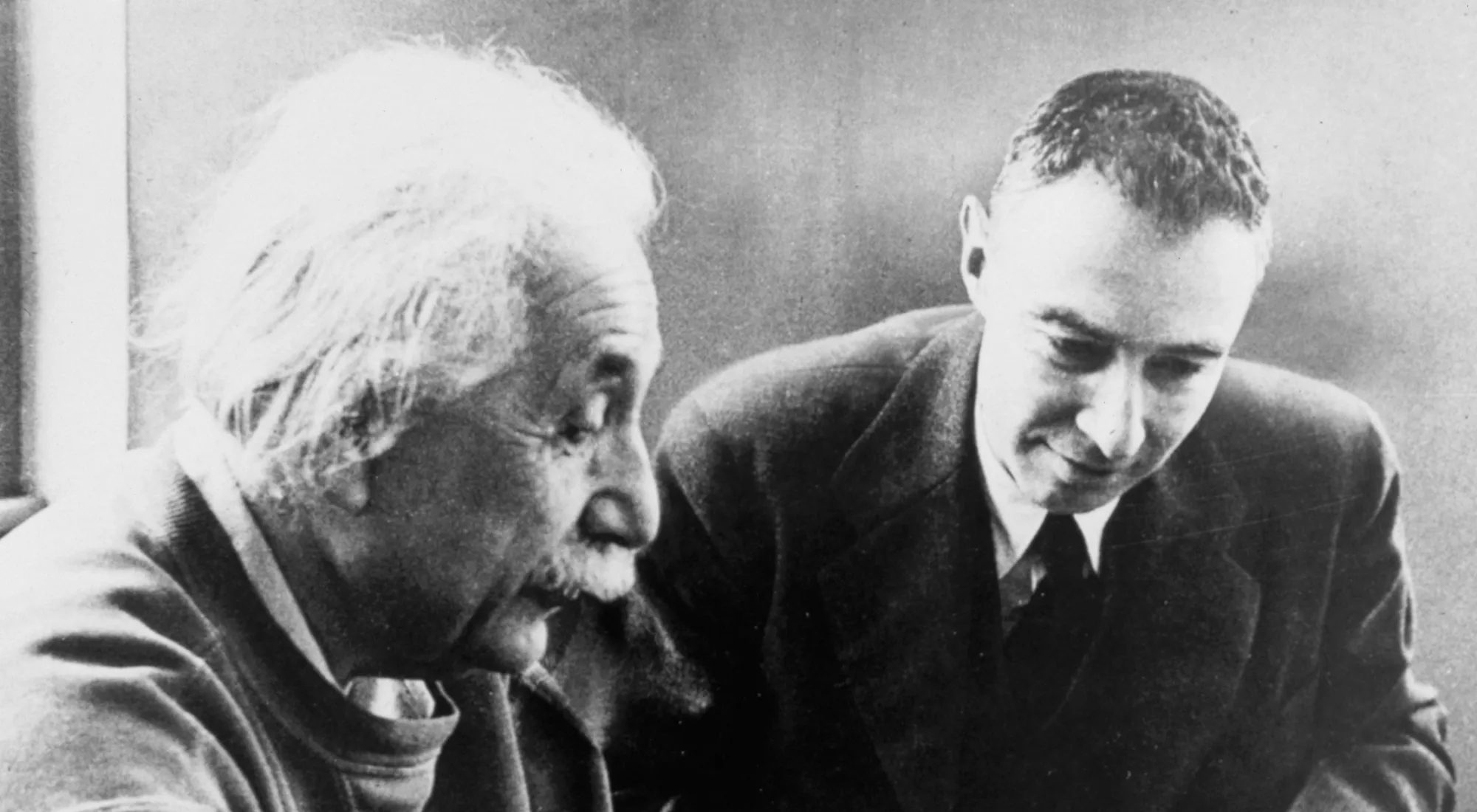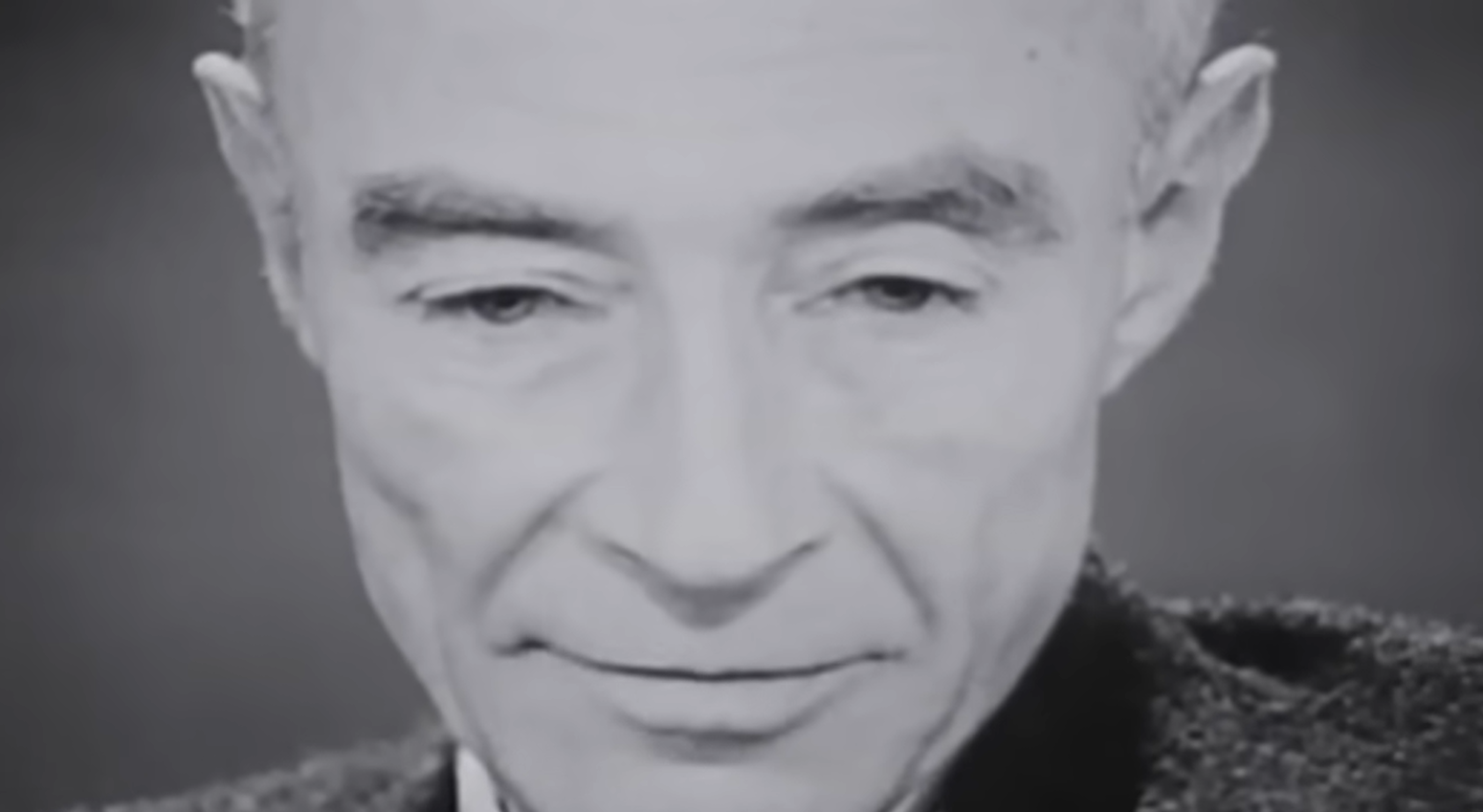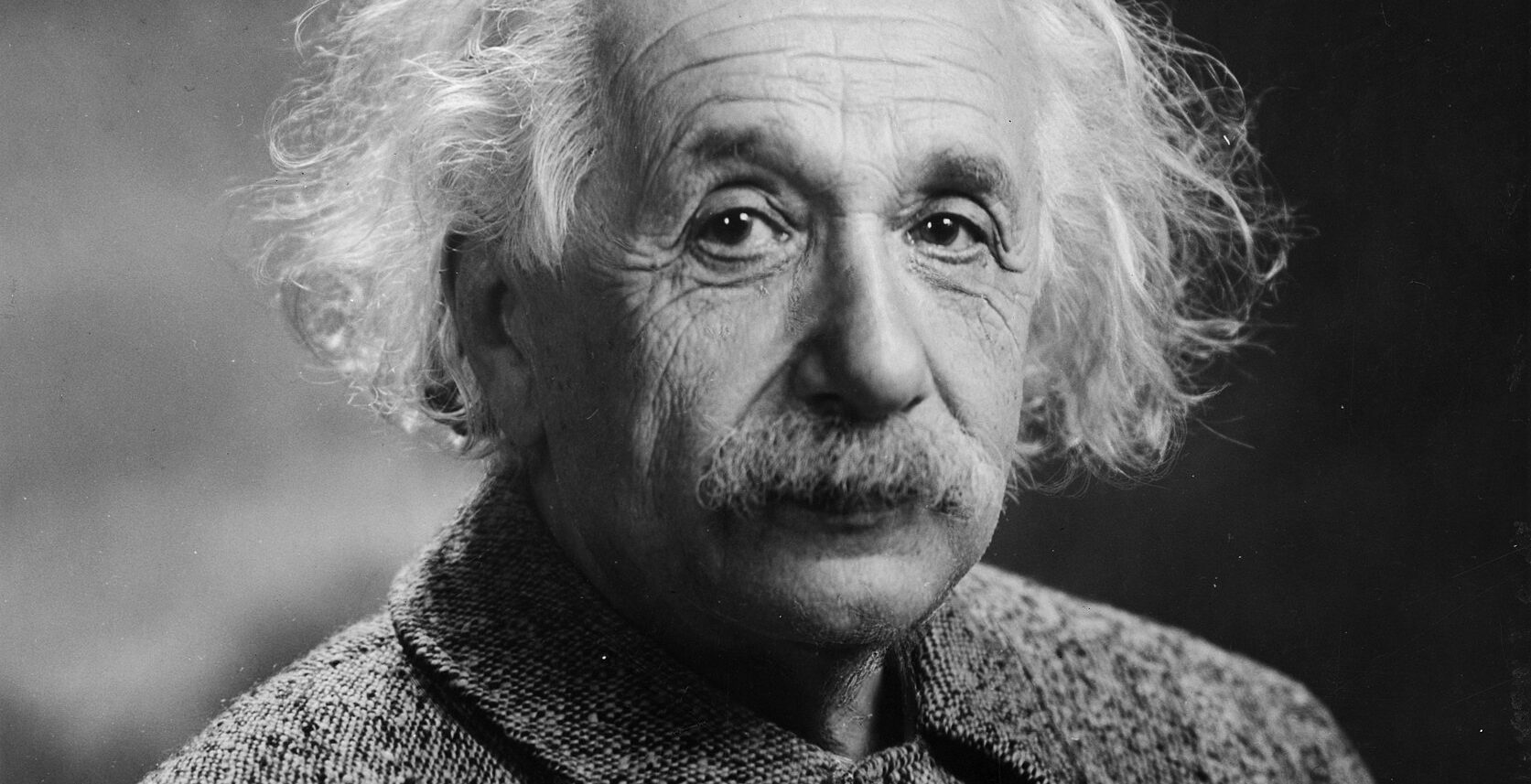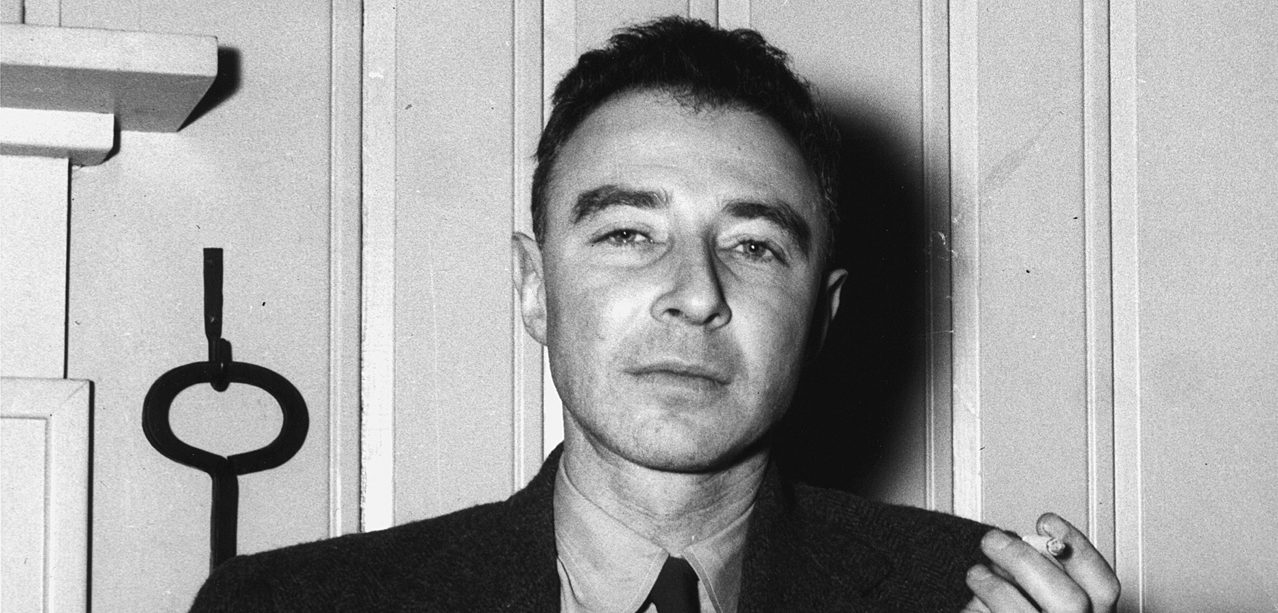Christopher Nolan’s biographical film ‘Oppenheimer’ revolves around the life of J. Robert Oppenheimer, who is regarded as the father of the atomic bomb. The film follows the eminent scientist’s efforts to design and make the atomic bombs in the wake of the Second World War. In a significant scene in the film, Oppenheimer talks to Albert Einstein, the man behind the theory of relativity, about the aftermath of creating and using atomic bombs. The particular conversation and Einstein’s presence in Oppenheimer’s life must have made the viewers wonder whether they were friends in real life. Well, here’s everything you need to know about the same!
Einstein and Oppenheimer Were Professional Companion
Einstein and Oppenheimer met for the first time in 1932 during the former’s visit to the California Institute of Technology (Caltech). Their first meeting was the start of many conversations about physics and science in general. Later, they became colleagues at the Institute for Advanced Study. Their lives as two influential scientists were interconnected but they were never particularly close friends. Oppenheimer described them as “close colleagues” and “something of friends.” As far as Einstein is concerned, the scientist never considered Oppenheimer as a close friend possibly because their “scientific opinions are fairly diametrically different,” according to Kai Bird and Martin J. Sherwin’s ‘American Prometheus,’ the source text of Nolan’s film.

Oppenheimer, on the other hand, had once written his brother, “Einstein is completely cuckoo,” for refusing to accept the quantum theory. He also thought Einstein “brought to the work of originality deep elements of tradition.” “In the last years of Einstein’s life, the last twenty-five years, his tradition in a certain sense failed him,” Oppenheimer said while delivering a lecture at the UNESCO House in Paris. It doesn’t mean that they didn’t admire each other. According to Bird and Sherwin, Oppenheimer considered Einstein as the “living patron saint of physics” and the latter described the former as an “unusually capable man of many-sided education.”
Oppenheimer and Einstein walked on different paths because they approached politicians and figures of authority differently. Oppenheimer “seemed to relish his fame and the opportunity to mix with the powerful, Einstein was always uncomfortable with adulation,” wrote Bird and Sherwin. Oppenheimer himself was aware of the same. As Oppenheimer observed, “he [Einstein] did not have that convenient and natural converse with statesmen and men of power…,” reads ‘American Prometheus.’ Still, Einstein did take Oppenheimer’s side when the United States Atomic Energy Commission (AEC) investigated the latter when he came under suspicion as a Soviet Union spy.

When AEC charged Oppenheimer, Einstein talked to the former about the same. “Einstein thinks that the attack on me is so outrageous that I should just resign,” Oppenheimer told his secretary Verna Hobson, as per the source text of the film. Einstein argued that Oppenheimer “had no obligation to subject himself to the witch-hunt, that he had served his country well, and that if this was the reward she [America] offered he should turn his back on her,” the book further reads.
However, Einstein didn’t support Oppenheimer only because they were “something of friends” but also because he was scared of the anticommunist crusade AKA McCarthyism that had been happening in the US. “He [Einstein] now feared that by cooperating with the government’s security board, Oppenheimer would not only humiliate himself but would lend legitimacy to the whole poisonous process,” Bird and Sherwin wrote. “Oppenheimer is not a gypsy like me. I was born with the skin of an elephant; there is no one who can hurt me,” Einstein talked about Oppenheimer, as per ‘American Prometheus,’ while considering the latter as “a man who was easily hurt — and intimidated.”

In 1954, AEC suspended Oppenheimer following a security review. Upon learning about the same before it became a piece of breaking news by The New York Times, fellow physicist Abraham Pais persuaded Einstein to express his support to Oppenheimer. “I admire him [Oppenheimer] not only as a scientist but also as a great human being,” Einstein told a United Press reporter. However, Einstein didn’t agree with the way Oppenheimer dealt with the predicament. “The trouble with Oppenheimer is that he loves a woman who doesn’t love him — the United States government… The problem was simple: All Oppenheimer needed to do was go to Washington, tell the officials that they were fools, and then go home,” Einstein told Pais, as per Bird and Sherwin’s book.
Although Oppenheimer and Einstein were not the closest of friends, they were two of the most influential scientists of their times, which made their utmost professional companionship an inevitability. Despite their disagreements, it is certain that they respected each other and their contributions to the world of science.
Read More: Oppenheimer: What Happened to Florence Pugh’s Jean Tatlock? How Did She Die?


You must be logged in to post a comment.